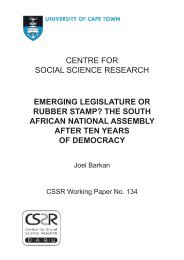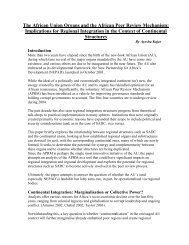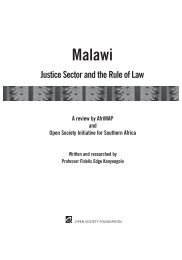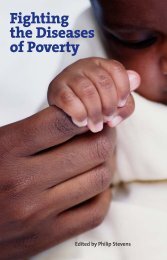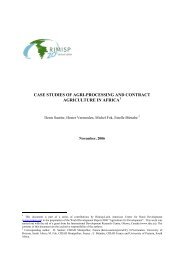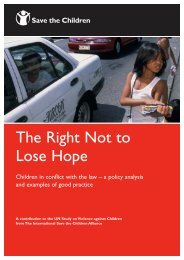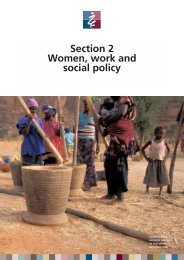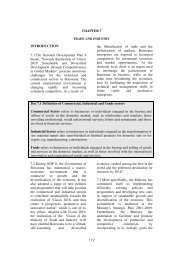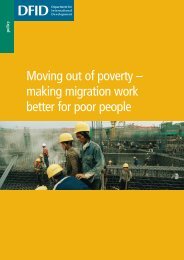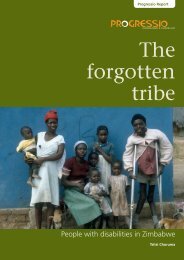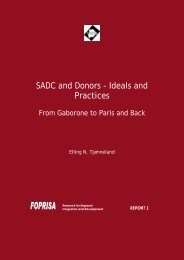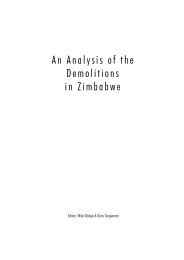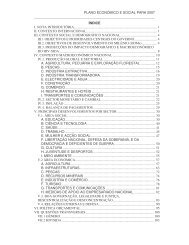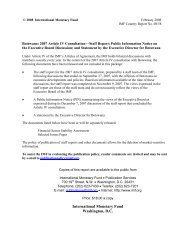Report of the National Conference: Women's Property Rights ... - FAO
Report of the National Conference: Women's Property Rights ... - FAO
Report of the National Conference: Women's Property Rights ... - FAO
Create successful ePaper yourself
Turn your PDF publications into a flip-book with our unique Google optimized e-Paper software.
uilding <strong>the</strong> capacity <strong>of</strong> women and girls affected by HIV and AIDS to advocate for <strong>the</strong>irrights, to mobilise <strong>the</strong> support <strong>of</strong> <strong>the</strong> community and to monitor <strong>the</strong> implementation <strong>of</strong>commitments. There are still some challenges surrounding cultural norms thatdiscriminate against women and girls on issues <strong>of</strong> inheritance and <strong>the</strong> level <strong>of</strong> awarenesson existing legislation protecting <strong>the</strong> rights <strong>of</strong> women and children is limited.9.0 Key RecommendationsThe recommendations emerged as a result <strong>of</strong> working group discussions and exchange <strong>of</strong>regional experience between participants. In <strong>the</strong> process <strong>of</strong> developing recommendationsparticipants were guided by three challenges emanating from <strong>the</strong> opening speeches givenby <strong>the</strong> Deputy Minister <strong>of</strong> Community Development and Social Welfare, Sebio Mukukaand <strong>FAO</strong> Representative Mr Qingsong Dong. The recommendations were to:• Seek practical solutions that build on existing processes if possible,• Make rights a reality,• Demonstrate “empathy” and “compassion” when considering <strong>the</strong> intractablechallenges that women and children face in <strong>the</strong> context <strong>of</strong> chronic poverty, HIVand AIDS and uncertain property rights.The recommendations consist <strong>of</strong> practical steps to be taken after <strong>the</strong> workshop,identifying someone to take responsibility for making sure that recommendations areimplemented. This champion must identify potential partners and where possible <strong>the</strong>estimated timeframe for each activity. Due to <strong>the</strong> broad nature <strong>of</strong> issues affecting womenand children’s property rights in <strong>the</strong> context <strong>of</strong> HIV and AIDS, <strong>the</strong> discussions andrecommendations were were guided by four <strong>the</strong>matic areas outlined below:1. Constitutional, legal and policy reform for women’s property rights.2. HIV and AIDS and livelihoods support programmes as integral part <strong>of</strong> propertyand inheritance programme.3. Advocacy and sensitisation programmes, media and o<strong>the</strong>r innovative methods.4. Strategies to move forward with <strong>the</strong> Chilala Case.Through intensive discussions and debate, <strong>the</strong> groups came up with a number <strong>of</strong>recommendations, but those presented here were agreed as key and likely to be initiatedalmost immediately.9.1 Constitutional, legal and policy reform for women’s property rightsThe recommendations are based mainly on <strong>the</strong> Intestate Succession Act and <strong>the</strong> Wills andAdministration <strong>of</strong> Testate Estates Act.(i) Intestate Succession Act Chapter 59 <strong>of</strong> 1989The Act presently does not apply to land acquired under customary law, institutionalizedproperty acquired under a Chieftainship and family property. The Intestate Succession25



